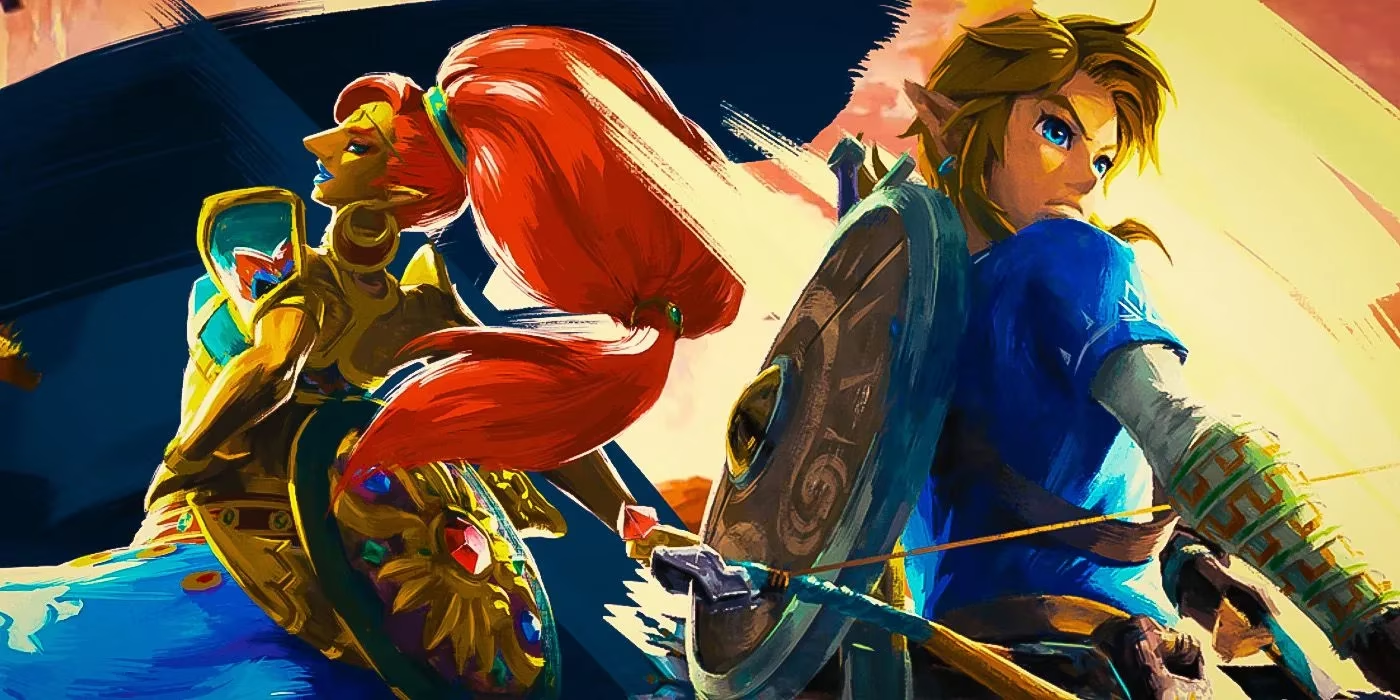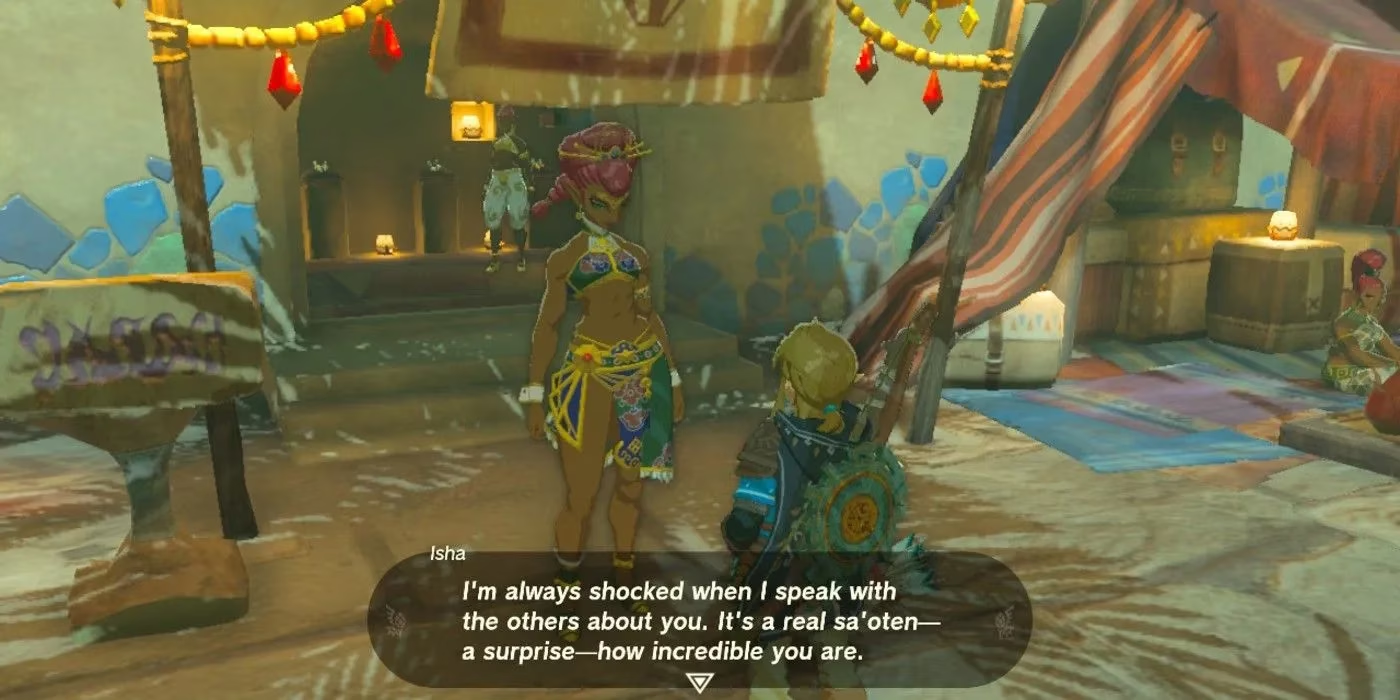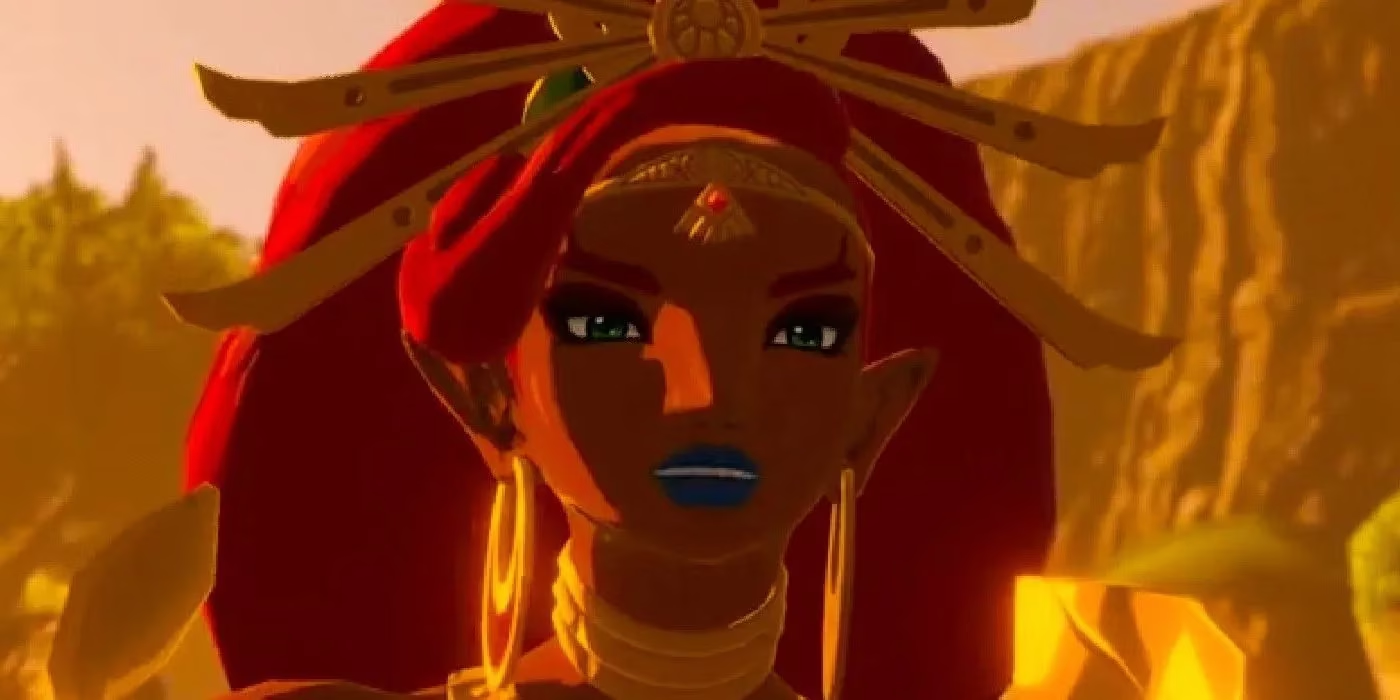I still hear the desert’s echo in every Sav’otta uttered by sun-baked warriors, a linguistic mirage shimmering across Hyrule’s sands. When I first wandered into Gerudo Town in Breath of the Wild, the cadence of their speech wasn’t mere noise—it was a key unlocking ancient secrets. That guttural Sa’oten! when lightning struck near the bazaar, the warm Vasaaq greeting daybreak—they wove an illusion of depth far beyond the sparse official lexicon. How could syllables so few evoke a civilization so vast? Perhaps it’s the weight of isolation, the legacy of a people who once defied kingdoms, now etching their identity in phonemes sharp as scimitars.

Gerudo isn’t just language—it’s rebellion crystallized. Think of their existence: matriarchs sculpted by dunes, warriors whose veins pump defiance. Ganondorf’s shadow looms, yes, yet their tongue remains defiantly their own. No Hylian shares these words; they’re relics of a time when Gerudo stood beyond borders, guarding traditions like oasis water. When I trade gems with Isha in Tears of the Kingdom, her slang—Voe clipped to V’—feels like shared conspiracy. Such minimalism! Yet it screams cultural pride louder than epic ballads.
-
Spoken magic: Fragments like Sav’aaq (hello) or Sarqso (thank you) aren’t vocabulary—they’re rituals.
-
Written riddles: Alphabet as cipher? A to Z mapped onto glyphs? Genius, yet jarring—why would desert dwellers encrypt English?
-
Absent grammar: Almost none! Just prefixes like sav- for “good,” dangling modifiers like linguistic mirages.
The scarcity haunts me. Only 40-odd words catalogued across games, slang barely thickening the broth in TOTK. We crave more, yet I understand why Nintendo held back. Expanding Gerudo would demand focus—distracting from Zonai ruins or sky islands. But oh, the lost potential! Imagine idioms swirling like sandstorms: “She speaks with a viper’s tongue” or “Moon-flecked silence.” A supplementary tome could bloom this lexicon—no game constraints, just pure linguistic archaeology.

Etymology unveils poetry in pragmatism. Gerudo roots dig into Japanese soil—Saboten (cactus) birthed Sa’oten, that startled cry. Sav’otta? A twist on sabotta, “slacked off.” Desert themes anchor everything:
| Original Word | Gerudo Evolution | Meaning Shift |
|---|---|---|
| Saboten | Sa’oten | Surprise → Cactus essence |
| ??? | Voe | Man → Outsider |
Creating new words feels eerily simple now. Borrow Japanese desert terms—suna (sand) or kaze (wind)—morph them with apostrophes. Sun’ara for “dune-song,” Kaz’eel for “gale-wail.” Why hasn’t Echoes of Wisdom embraced this? A Gerudo sage murmuring prophecies in full tongue would shatter boundaries.

Conlangs are living worlds. Tolkien’s Elvish, Dothraki’s guttural hymns—they breathe authenticity. Gerudo teeters on that edge, its brevity a cliffhanger. I ache to hear elders chant origin myths untranslated, or catch lovers’ whispers in market alleys. That illusion of depth? It’s fragile. Without expansion, it crumbles like sun-baked clay. Yet hope flickers—future games could weave language into quests: recover lost tablets, decode Ganondorf’s ancient decrees.
For now, I cling to those sparse phrases. They’re not just words; they’re compasses pointing to what’s unsaid—the history coiled in silence, the culture simmering beneath syntax. Gerudo isn’t spoken. It’s felt. And perhaps... that’s enough. For now. 🌵✨